DOORSTOP INTERVIEW
MELBOURNE
THURSDAY, 28 JANUARY 2016
JOANNE RYAN, FEDERAL MEMBER FOR LALOR: Obviously I’d
like to welcome everybody to the electorate of Lalor today to Iramoo
Primary School, a fabulous school doing a wonderful job with the
students here. I’d like to welcome Bill, I’d like to welcome Kate and
I’m incredibly excited to be here to make the announcement that Bill and
Kate will make today in this particular school, and in this particular
electorate. Of course the work, the education work that began under
former Prime Minister Julia Gillard, who was our local member here. So
it’s an important place for us to be today, to honour that work to see
that work go forward. And to be at this particular school today, which
is a school where students have a lot to overcome and where through
national partnerships and through needs based funding this school has
done extraordinary work to bring every child on, to make sure that
every child is learning and to measure and monitor that growth in a
meaningful way. So it’s a great place to be, thank you.
BILL SHORTEN, LEADER OF THE OPPOSITION: Thanks
Joanne and it’s great to be here with my Shadow Minister for Education,
Kate Ellis and of course Joanne Ryan, Member for Lalor. Joanne was a
distinguished school principal over many years before she ran for
Parliament for the Labor Party, and she certainly wears her education
heart on her sleeve. And to that end, today I am pleased to announce on
behalf of the Labor Party that a Shorten Labor Government will make the
most significant improvement to school education in 2 generations. Our
plan is called Your Child. Our Future.
It will ensure a strong focus on the needs of every individual child.
It will ensure that we have better supported teachers, better resourced
classrooms. That we have more support for our teachers going forward,
that we have more individual attention for our students. It’ll also
importantly ensure that we have stronger support for children with
special needs throughout Australia.
With Labor’s policy every school and every child will benefit,
because after all there is nothing more important to a country’s
economic prosperity then making investments in education. It’s sad to
say but recent reports show that Australia’s educational outcomes are
going backwards internationally, and that’s just not good enough for the
future of our kids. We are running for instance, in mathematics now
17th in the world. Imagine if you will, if Australia was coming 17th in
the medal tally at the Olympics, the Government would certainly do
everything it could to fix it. And there is nothing more important than
the future of our children.
You know today and this week, millions of Australian parents,
including Chloe and myself sent their children off for the first day of
school, and like every parent Chloe and I want to see our 3 children get
the very best outcomes in education that they can.
But that’s in fact the big difference between Labor and
Liberal. Labor wants to see everyone’s children get the best
possible start in life, to set them up with the skills and
resilience, to be able to compete in the world of tomorrow, for the
jobs of tomorrow. So my message today in particular is to the parents
of Australia, from one parent to another; it is only Labor who will put
your children’s future first.
When you think about it, in our cities and our suburbs, in our
country towns and along our coast, in state schools, Catholic schools,
in private schools, wherever you live, we want to make sure that
every child in every school gets every chance to be the best they can be
in their educational opportunities.
A Shorten Labor Government will fully fund the Gonski recommendations
in education, funded in full and on time. Labor is able to make
this promise because we’ve already explained how we would provide funds
from the Budget through the improvements that we suggested last year to
be able to do this.
There’s a lot of talk about innovation in Australia. But unless you
are prepared to fully invest in our school system, in the education of
our young people, talk about innovation is just simply talk.
So therefore, at the next election, Australians have a very clear
choice; we can choose to invest in our education system and in
our future with Labor, or we can choose Mr Turnbull and his Liberal
team’s cuts to education. I’d like to hand over to Kate Ellis my
Shadow Minister to talk further about the detail of this
fantastic announcement today.
KATE ELLIS, SHADOW MINISTER FOR EDUCATION: Well,
thank you very much to Bill, thank you also to Joanne for hosting us
here, and for Moira for welcoming us to your school at such a busy time
of year. It is a great pleasure to talk a little bit more about
this policy announcement. And I want to make a couple of things
very clear; there is focus on the fact that we are today recommitting to
funding in full and on time years 5 and 6 of the current school
funding agreements. That’s very important, but today’s announcement is
also about more than that. This is about a permanent shift to ensure
that Australia’s schools and Australian students have the resources and
the support that they need to get the education that they deserve.
This is not just about money, this is about the difference that can
be achieved in our classrooms through new programs and through evidence
based policy to make sure that every child in every school gets the
attention that they need and deserve. This is about each and every child
and each and every school, but it’s also about more than that too. This
is about our economy; this is about Australia’s future. This is about
jobs and making sure that young Australians have the skills for the jobs
of the future, and this is about innovation.
Let’s make one thing very clear; Malcolm Turnbull can talk as much as
he likes about innovation, but if he continues to rip funding out of
Australia’s classrooms, that is absolutely all it is; it is talk. If you
want to innovate for Australia’s future, there is no one more important
way to do that than to ensure that we have Australia’s school
system right. We need to make the change now, or our children will be
left behind.
Now, we also know that today is about backing our teachers and our
principals and those people who work so hard in the classroom. We want
to make sure that they have the resources and the support that they
need. We want to make sure that they have the evidence base and the data
that they require to give our children the best education, and we also
want to make sure that we lift teaching quality in this nation so that
every child is receiving the teaching support that they need.
We want to make sure that our entire school system is built
around evidence and is built around improvement, not about covering over
from the cracks and the cuts that Liberal governments continue to
inflict upon them.
And I want to particularly talk about one group of students today,
and that is, students with a disability. It is incredibly important that
by ensuring that we are providing the funding for the sector blind
needs-based funding model that our schools need and deserve, that
every child will receive the support that they deserve. We know that the
Liberal Government have walked away from students with disability and
then cut the interim funding that was put in place in order to paper
over that. We stand here today saying that we will work with states and
territories to ensure that when the data is received, we work to roll
out the disability loading to every school across Australia.
But more than that, we today commit that we will immediately
return the money that the Abbott and Turnbull Governments ripped from
students with disability and put in place $320 million in interim
funding immediately upfront.
And finally, I want to say that I have no doubt that the Government
will say this is about money, this is about Labor throwing money at
our schools. I want to make very clear; this is about
restoring accountability and transparency that Christopher Pyne
ripped away when he was Education Minister. It was the current Liberal
Government who said that they believed in no strings attached funding to
our schools. That will not continue under Labor. We are providing
substantial funds. We’re talking about $4.5 billion over the forward
estimates, and we are talking about reversing all of the Government’s
cuts over the next 10 years and providing some $37 billion in
10-year provisions, but that does not come with no strings
attached. That comes with the agreement that we expect the State
Governments to keep to their side of the deal and that we expect that
that money will be used in a transparent and accountable fashion on the
programs that our students need the most. Thank you very much.
SHORTEN: Thanks, Kate and we’d be pleased to take questions about this announcement.
JOURNALIST: Bill you said you will fully fund it. How are you getting that money? Where’s it coming from?
SHORTEN: Last year, my Labor team worked very hard
to outline where we could stop wasteful government spending and where we
could take other initiatives to be able to afford
important, economy-shifting, life-changing propositions such as
properly funding our schools in Australia. So specifically, Labor has
said we will make multinationals pay their fair share, and I will come
back to that, but Labor, and only Labor, can be really trusted to chase
down the multinationals to make them pay their fair share. Secondly,
we’re going to go after the unsustainable and excessively
generous superannuation tax concessions that high net wealth individuals
currently enjoy. Thirdly, we’ve made it very clear that we will have
an excise on tobacco products increase over the next three years, but it
isn’t just those measures. We’ve also said that we will stop wasting
taxpayer money on the folly of Tony Abbott’s failed emissions reduction
fund schemes and we’ve also made it really, really clear that we’re
not going to indulge the National Party of Australia with some Malcolm
Turnbull buy-off for the leadership by a baby bonus which no-one has
asked for and this nation simply can’t afford. So we’re
actually breaking the mould of an opposition. Not only are we announcing
our policies well ahead of the election in August and September, but we
can already explain how we pay for them all. But I did mention this
point about multinationals. I don’t know about you, but I know late
last year many Australians were staggered to find out that
579 Australian companies paid no tax. That made people boiling mad just
before Christmas. Australians go and pay their tax, small businesses pay
their taxes, the tradies and the contractors have got to pay their
taxes. We find that the top end of town aren’t paying taxes and today,
Apple, which is a household name, $8 billion of [revenue] in Australia,
that’s right, $8 billion of profit in Australia paid no tax.
JOURNALIST: So Bill, that’s one of those measures
that you’ll be funding this with. How many other policies are
being funded by those measures though?
SHORTEN: We’ve fully explained and we can cost –
we are in the black in terms of what we’ve promised and we have made
some promises on higher education, only Labor can be trusted to make
sure that –
JOURNALIST: There are other measures –
SHORTEN: Let me be clear, let me be clear.
You’ve asked a question and I will come to any question you have. And
we’re not going to get the Liberals try and just smear this campaign.
We’re very clear. We’ve announced more savings to the bottom line, more
resolutions of tax rorts and loopholes than any opposition has
previously. You know, we are happy in terms of what we’ve said. We’ve
got funded policies. It’s because of our hard work last year that we’re
able to get behind the millions of parents and their kids and promise
them a better future, better ability to compete with the world, and
by the way, you know, the Liberals when they attack us for
properly funding education, isn’t that really the problem at the core of
Mr Turnbull and his Liberals? They see the education of Australia’s
children as a cost. We see it as an investment.
JOURNALIST: But Bill, those measures, so
there’s multinational tax avoidance scrapping the emission reduction
fund, have they been promised to other policies?
SHORTEN: No, this all, overall, we’ve promised over
the next 10 years more than $70 billion. Let me repeat that number,
because it’s a big number – we’ve promised over $70 billion worth of
reductions to the budget bottom line and that is why we are able to pay
for the promises which we’re making.
JOURNALIST: So it’s not magic pudding economics to say it’s fully funded?
SHORTEN: No, if fact this is – the reverse is true. Only Labor’s got costed policies for the next election.
JOURNALIST: And Mr Shorten tis hat more than promised under the Gonski reforms?
SHORTEN: Our changes go further. And by that, what
the school system want, the poor old State Education Departments want,
what the Catholic Education Commission want, what the non-government,
the independent schools want, is they want funding certainty. Kate said
it before. Our approach is breaking the age-old argument of state versus
private. You know, we want to consign that argument to the past. We
believe in a sector-neutral approach. We believe in an approach which
is needs-based funding. Our policy, every school, every child, will get
the extra resources they need to get every chance to succeed in
the future. Our education policy is an economic policy.
JOURNALIST: Just on the Budget broadly though, do you believe in balancing the Budget and if so, when will Labor get to that point?
SHORTEN: We certainly believe in
fiscal responsibility. That’s why we’ve worked so hard last year, and
we’ll have more to say in coming weeks and months. The job’s not over
for us. We are working very hard. But what I’d say is, we do believe
of course in fiscal responsibility. But what I get is that life doesn’t
boil down to this sort of bleak choice where Malcolm Turnbull,
Scott Morrison and the Liberal team say: if you want any improvements in
your education or hospitals you got over 15 per cent GST. Today is also
a shot across the bows of the Federal Government’s absolute hunger
to put a 15 per cent tax on the price of everything. We can
properly fund our schools, without making the cost of living
an intolerable burden for middle class and working-class people in this
country.
JOURNALIST: So you haven’t put a time frame on returning to surplus?
SHORTEN: Our aim is over the cycle, over the 10 years.
JOURNALIST: Just on New South Wales Labor, if i may, do you support moves from –
SHORTEN: Just before we get to that issue of New
South Wales Labor, are there other questions for my colleagues and I
on education, because you know this week –
ELLIS: Could I add to that schools question? I just
want make clear, the question was: are we delivering more than what was
in the promised in the agreements and I think we need to be really
upfront about that. Today what we are delivering is funding for the last
two years of the agreements but we are going beyond that. Today we are
delivering a complete reversal of the current government’s $30 billion
cuts to our schools over the next 10 years. That’s what we’re promising
here today. It’s not about just the last two years of the agreement.
It’s about making sure that we have the provision so that we can
adequately fund our schools permanently moving forward and so that we
will be on the right footing to then be able to negotiate the
next agreements, and ensure that we continue to drive reform in our
schools beyond the current agreements, but certainly, first of all, by
finishing the existing agreements.
JOURNALIST: Do you support the ban on MPs travelling to Israel while the settlements are still being built in the contested areas?
SHORTEN: There is no ban in place. I trust my MPs to be able to exercise judgment in terms of their overseas trips.
JOURNALIST: Do you support a potential ban?
SHORTEN: I support my MPs exercising their
own common sense and views. I trust Labor’s representatives, I don’t see
the need to start giving them travel instructions.
JOURNALIST: On Anthony Albanese, he’s announced that
he’ll recontest Grayndler, with some other MPs it’s still unclear
what’s happening in the Central Coast. Does Jill Hall have a future in
the Parliament?
SHORTEN: Our Labor team will sort out their
preselection’s in New South Wales. When you look at it, Labor is the
picture of harmony compared to what’s going on in New South Wales in the
Liberal Party. I mean, does Craig Kelly – is he getting challenged?
Is Philip Ruddock going around for the 20th time? Bronwyn Bishop – is
she on the team or is she off the team or is she being thrown overboard?
You’ve Tony Abbott overseas being the alternative to the
Prime Minister. There a great deal of divisions between the New
South Wales Liberal Party. I’m very confident that Labor will sort
out its preselection’s. These are never easy things but we’re doing
pretty well, I think, compared to the Liberal Party. I think any fair
observer would agree on that.
JOURNALIST: You still have to sure up your own side. Would you like to see Jill Hall alongside you in Parliament?
SHORTEN: Jill does an excellent job, so sure she
does a great job. I speak to all my team. Again, Let me be really clear,
the Labor Party is far more united than the Liberal Party. Australians
don’t want political parties just talking about themselves.
Unfortunately for Malcolm Turnbull, whilst he’s the front man, who’s
really pulling the strings in the Liberal Party? While he was away in
America, we saw numerous stories about dissension and concern
and different parts of the Liberal Party trying to mug other parts. In
the meantime, Australians this January as they approach the return
to school want to know from Malcolm Turnbull – why do you want to put a
15 per cent tax on everything? Why won’t you properly fund our schools?
Today, Labor is making a permanent shift. This is a big announcement.
It’s a funded announcement and what it means is we want every parent’s
child to get the best resources, we want every school to be a
great school, because we know that if we are going to give our kids the
best chance to compete in the jobs market of the future, if we want a
system of fairness in this country where it’s not the school you went to
or our postcode or how much money your parents have which
determines your future, it should be the access you get to
quality schooling everywhere. The OECD, this year or last year,
just said that one of the best predictors of a wealth of a nation is the
investment in education. And it’s a very clear choice at the
next election. You can have investment in education and our future with
Labor or you can have cuts with Mr Turnbull and his Liberal team.
JOURNALIST: Bill, could I just confirm, does this funding cover WA and the Northern Territory, which didn’t sign up to Gonski?
SHORTEN: Yes, we’ve made provision for that. The
truth of the matter is that we’re more than happy to negotiate with all
of the States and Territories, whatever the political complexion of the
State. I mean, really, it’s a no-brainer for State Governments.
What path do they go down? A 15 per cent GST on all their citizens with
no guarantee that the money is going to go back into the schools anyway.
Let’s face it, with the Liberal track record in 2013, a promising to be
identical to Labor then they lied and broke that promise, or they can
have our costed, funded policies which put schools, teachers, parents
and most importantly the kids at the centre of our plans for the future
of this country.
JOURNALIST: Bill, it’s not a binary choice, though is it? Not a binary choice between GST and Labor’s policies on the other hand, though?
SHORTEN: Well, you’d think so if you listen to the
Liberals. You know, they keep talking about how a 15 per cent GST is
going to solve everything. Our objection to the GST is
pretty straightforward. Why should middle-class people, why
should working-class people have to pay a 15 per cent tax on everything,
so that tax cuts can be given to the very wealthy companies. It’s
basically robbing the working and middle-class people of Australia to
give very rich companies who don’t need these changes . I mean, Apple’s
not even paying tax – and at the same time we’re willing to fund our
schools properly, with costed policies. See, we understand, the most
important thing that parents try to do for their kids – I learnt
from from my own mum, we all learn it. If you give your children the
best education possible, you give them the best chance in life as
adults. The difference is that Labor doesn’t just want it for
some children, we want it for every kid, every school, every postcode in
Australia. Thanks everyone.
ENDS

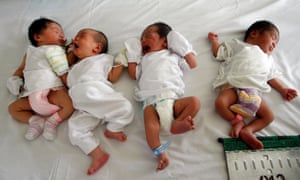
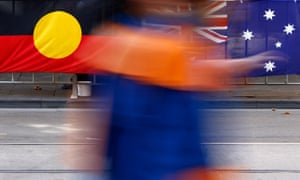
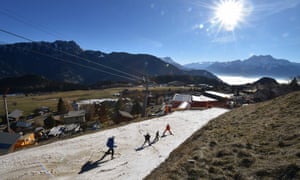
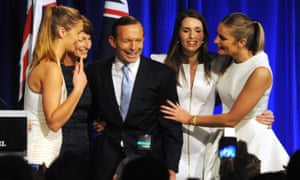
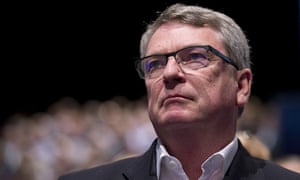
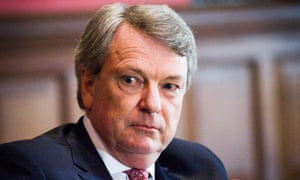
It was my cousin Robbie Simpson leaving me a message, when I called back he wanted to talk about a speech I had given months earlier. The speech had suddenly gained a new life after being posted on the Ethics Centre website to mark Australia Day.
I had been out of the country and when I arrived back my wife told me how the video had been viewed thousands of times. It had all taken me by surprise. I had long forgotten the speech, delivered as part of an intelligence squared debate for the BBC posing the question: is racism destroying the Australian dream?
The debate had been sparked by the Adam Goodes booing controversy, but it was more than that. It challenged us to ask hard questions of a country that is demonstrably among the most tolerant, free, prosperous and safe in the world, yet has a stain on its soul.